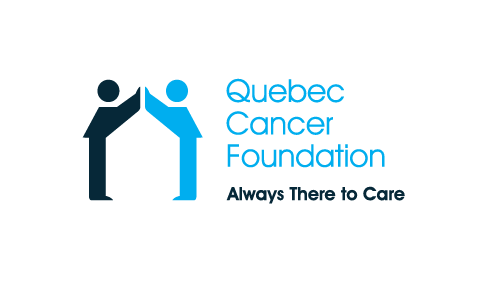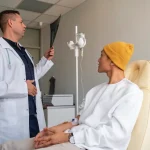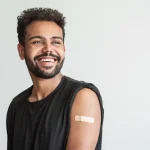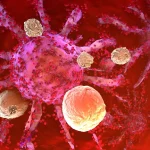For any questions:
Last update : november 2016
For example, they might:
- Help people adjust psychologically to their condition
- Help them find financial support
- Tell them about existing social programs and facilitate their access to them
- Help them organize transportation
Here’s when it’s useful to reach out to a social worker
- When you’re having trouble adjusting to your illness or treatment
- When the feeling of sadness and despair persists
- When family problems are affecting your ability to cope with your situation, illness or treatment
- When financial, emotional, personal or practical problems come up
- When you feel alone, isolated or rejected by your family

How can a social worker help me?
Here are a few ways a social worker can help:
- Counselling and individual or couple’s therapy
- Dealing with families and groups
- Advocating for patients’ rights
- Support filling out forms and documents to apply for services
- Prevention and education related to health and wellness
- Hospital discharge planning
- Identification of available resources and liaison with community partners
Who can ask to meet a social worker?
- People with cancer can ask to meet the social worker.
- A loved one of a person with cancer can ask to meet a social worker for him or herself.
- A member of the interdisciplinary healthcare team – often a pivot nurse – can refer a patient to a social worker.
- In certain cases (e.g. for specific types of cancer), the person will automatically be referred to a social worker.
Where do the appointments take place?
- At the hospital
- At the CLSC
- In some community organizations
How can I prepare for my appointment with the social worker?
- Write down your questions.
- Note all the things you’ve done so far and tell the social worker about them.
Examples of questions
- What resources are available to me?
- Where can I get financial aid?
- How do I talk to my loved ones about the illness? How do I tell a child?
- If I’m not able to return to work, what are my options once my employment/disability insurance has run out?
- Where can I get help with home care/housework/transportation/meals?
- Can you help me get support from my loved ones/my community?
- Can you help me manage conflicts at home/at work?
- Can you help me find temporary housing/a convalescent home/affordable lodging for me and the person accompanying me?
- Can you help me and my loved ones better manage the anxiety and emotional distress associated with cancer?
- What are my rights: how can I consult my patient file/get a second opinion/have my decision respected/get follow-up if I decide to refuse or cease treatments?
To learn more
For more information about the role of social worker or for help getting ready for your appointment, call the Info-Cancer Hotline (1-800-363-0063) to speak with a nurse or documentalist.
Sources
McGill University Health Center. Social Workers play vital role in helping patients get back on their feet. https://muhc.ca/patients/article/social-workers-play-vital-role-helping-patients-get-back-their-feet. Accessed December 5, 2016.
Vitalité Health Network, New Brunswick. Social Work. http://www.vitalitenb.ca/en/service-points/hospitals/edmundston-regional-hospital/hospital-based-social-workers. Accessed December 5, 2016




































